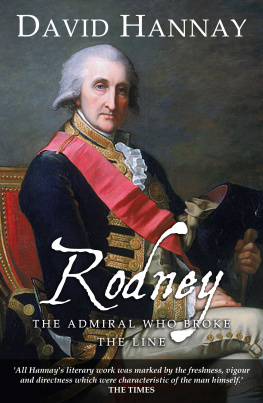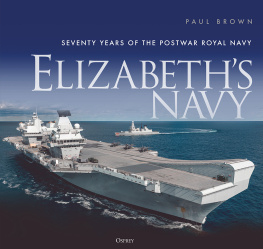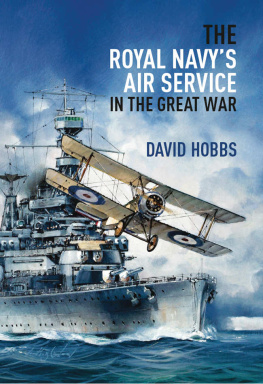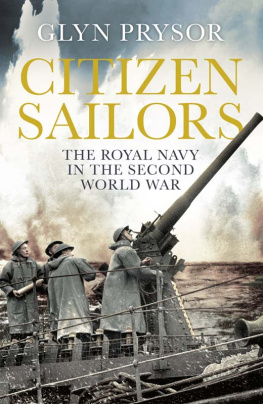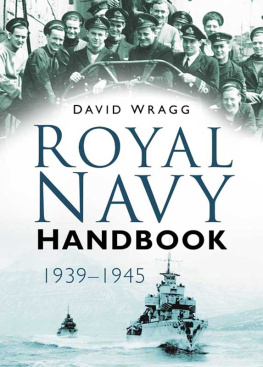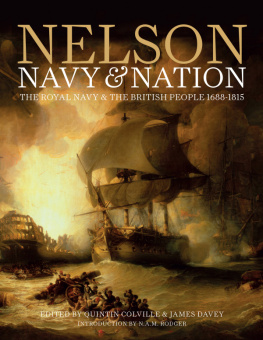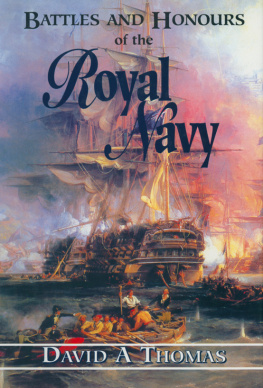PREFACE
It has been my endeavour in this book to give a popular, but clear and not inaccurate, account of the growth, and services, of the Royal Navy. I have not attempted a general maritime history of England. This, which would include the rise and extension of commerce, discovery, much scientific matter and much legislation, would be the life-work of a Gibbon or a Hume. Such a task would be far beyond my powers, even if circumstances, which need not be specified, did not refuse me command of the time needed for so great an undertaking.
I am not unconscious that a landsman deals with sea affairs at a certain risk. He has, in Southey's phrase, to walk among sea-terms "as a cat does in a china pantry." He is liable to discover, from the criticism of a sailor, that he has made a fleet sail within two points of the winda disaster which it was once my lot to undergo. Perhaps only long professional experience will save a writer from such errors. If, as is only too probable, there are some in this book, I can but beg for the favourable consideration of the friendly reader.
The present volume ends at that dividing line in our history, the Revolution of 1688. Another will give the history of the great struggle with France and her dependent allies, which began in 1689, and ended only when the time of great naval wars was overfor at any rate the larger part of a century, if not for ever. The main subject of the present volume, apart from the formation of the naval service, is the less known, but not less important, and assuredly not less arduous, struggle with Holland.
I have made it the rule to adopt the accepted spelling of namesto write Monk, not Monck; Raleigh, not Ralegh; Hawkins, not Hawkyns. Matthew Arnold once gave it as his reason for not adopting a reformed system of spelling classical names, that he would not pass his life in a wilderness of pedantry in order that his children might attain to an orthographical Canaan. That Hawkins used a "y" where we use "i" in his name, as in other words, therein following the custom of his time, does not seem to me to be any reason for departing from the practice of the language as it is to-day.
DAVID HANNAY.
INTRODUCTION
THE MEDIVAL NAVY
Authorities. Sir Nicholas Harris Nicolas has made an exhaustive collection of all the evidence as to the history of the Royal Navy in the Middle Ages, in the only two volumes published of his History of the Royal Navy from the Earliest Times to the Wars of the French Revolution. It is the basis of this Introduction. Captain Burrows' Cinque Ports, in the Historical Towns Series, supplements Sir H. Nicolas.
A glance at a globe turned so as to bring the British Isles directly under the eye will at once reveal the most effective of all the material causes which have made them the seat of the great naval power among nations. It is the unrivalled advantage of their position. They lie between the Old World and the New, with free access to the great ocean, surrounded by seas, which, though stormy, are not unmanageable. Their coasts are never blocked by ice. No long intervals of calm varied by mere puffs of wind reduce sailing ships to immobility, and limit their size by imposing on them the necessity of relying on the oar. Steam has freed maritime war and commerce from dependence on the wind, but the naval power of England was created during the ages of the sailing ship. Steam, too, has only made the benefit of free access to the ocean if possible more valuable. It is commonly said that an island is peculiarly fitted to be the seat of a naval power, and no doubt freedom from the perpetual risk of invasion by land is a material advantage. Immunity from that danger has saved us from the necessity for expending our resources on armies, which crippled Holland, exhausted Spain, and has hampered France. But it must be remembered that the great maritime powers of antiquity and the Middle Ages were on the mainland round the Mediterranean, not on the islands. Again, it is clear that if, in the place of Ireland, there lay to the immediate west of us any great bulk of territory too strong to be conquered, too alien to be absorbed, our insular position would not have saved us from being much confined, if not wholly shut in. But to the west of us lies the Atlantic Ocean, the beginning of the road which leads to wealth and empire all over the world. No power can block our way thither while we exercise even equal strength on water.
Before full advantage could be taken of our position, three conditions had to be fulfilled. These islands had to become the seat of an organised State, and to cease from being merely the field in which hostile races were fighting for the mastery. The weapon of sea-power, which is the seaworthy and sea-keeping ship, had to be created. The New World had to be opened to the enterprise of the Old, and the globe to be explored. Ages passed before these conditions were fulfilled.
The maritime history of the country divides itself into three periods. First, there are the ages during which the people was being formed and the weapon forged. This may be said to extend from the first beginnings to the accession of the House of Tudor. At that date, when, be it noted, the Portuguese were exploring the sea route round Africa to the east, and Columbus was leading Spain to America, there was still much to be done in the work of consolidation within, and in the perfecting of the ship; but a vessel had been made which could sail the world round, and in the British Isles it had come to this, that England was predominant, and that for her fellow-islanders the choice was between conquest at her hands, or union on honourable terms. The second period stretches from the accession of the House of Tudor to the close of the seventeenth century, when superiority of power at sea had been fully won. The third, beginning with the Revolution, lasts until our own time. It includes the two hundred years or so during which England, having now united to herself, or conquered, all rivals within these islands, has exercised the power she had won.
A complete history of the maritime power of England would be a vast subject, for it must include the whole story of the growth of her commerce, and her commercial or fiscal legislation. The object of this book is more modest. It is merely to describe in the main lines, and without professing to enter into detail, the growth and action of the Royal Navythe armed force by which England has protected her commerce, has made her strength felt in the strife of nations, and has first secured, and then defended, her dominions beyond the sea.




